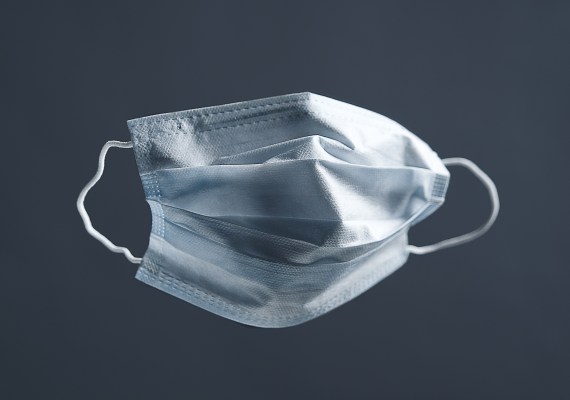Sam Altman, former president of Y Combinator and CEO of OpenAI, tweeted out his goal to secure 1 billion masks in 180 days. People just need to crowdfund those masks, first.
Altman, along with his brother Max Altman, an employee at Rippling; Radu Spineanu, the co-founder of Two Tap; Tinnei Pang, a designer at Mercari US; and others, are all working with suppliers in China to get 1 billion single-use masks to help the broader U.S. population, from service workers to those in hospitals but not directly working with COVID-19 patients.
The tech leaders will not be financing these masks themselves, but instead have asked institutions to fund the orders. Originally, 1billionmasks.com site used the phrase “crowdfunding” to ask for cash, but it has since changed that wording so the general public does not think they need to order masks.
“We are only taking orders for 10,000,000 or larger. So 10M is the minimum order,” according to Max Altman. “The idea is for institutions, States, cities, organizations, universities, etcetera to pool large orders to get the price per mask down and to increase the number of masks available.”
“This is a somewhat unusual market—the most effective way to guarantee supply is to pay up front so that factories can buy the equipment and supplies they need, and buying in bulk leads to significant cost savings,” the site reads.
According to the initiative’s website, none of the organizers will make money from the mask production.
Users can visit the 1billionmasks.com website and submit a form of “indication of interest.” If there’s enough demand, according to the team, an order form will appear on the site, and approved buyers will sign a contract and submit a payment to then “crowdfund” the masks.
If the demand hits a certain point, the team will be able to sell masks at 32 cents per mask, not inclusive of taxes and duties. If there is less demand, that price will be higher.
The masks are not meant to replace the dramatic shortage of N95 masks we’re seeing across the country, but rather to stop those not on the front lines from buying scarce N95 masks.
N95 masks are necessary because they filter out small particles, which is key for healthcare workers on the front lines caring for COVID-19 patients. This doesn’t mean that others don’t need to wear masks — and in fact, the WHO and CDC both recommend the use of masks broadly. Because of the recommendation, many DIY mask tutorials have been created, urging folks to use materials ranging from scarves to socks.
There has been a flurry of efforts from the private tech sector to help with medical shortages across the country. Apple, for example, sourced over 20 million protective masks and is now building “face shields.” Smaller companies are stepping up too: a heating filter company, a robotics startup and an architecture startup have all independently shifted operations to start making masks and ventilators.
The option that Altman and his team are providing has been rated for bacterial infiltration for people not on the front lines. The mask option is closer to a surgical mask than an N95 mask. Surgical masks do not provide as much respiratory protection as an N95 respirator, but do protect against droplets and large respiratory particles. According to the CDC, “most surgical masks do not effectively filter small particles from the air and do not prevent leakage around the edge of the mask when the user inhales.”
According to the website, the masks could be distributed by state and local governments, institutions, organizations and companies to essential workers, like grocery shoppers or delivery people.
Deliveries would start to arrive in Long Beach three to four weeks from the first order and then continue weekly for six months. Long Beach is the drop-off point because it is the location that the team can get supplies to the quickest, according to Max Altman.
Update: The team got back to TechCrunch with more details after publication. This story has been updated with more information.

